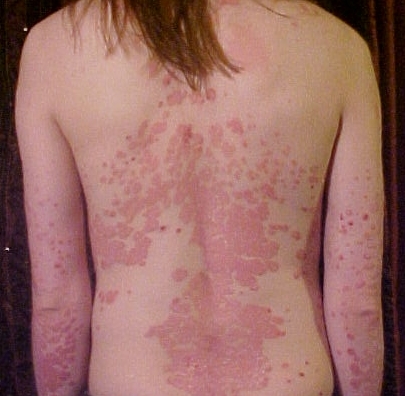Psoriasis is a chronic skin disorder that affects nearly 2% of the world's population. Generally marked by thickened red-tinted patches that are itchy or scaly, psoriasis' cause and treatment is still puzzling and remain a confound factor even for medical professionals.

Table Of Content:
- How to pronounce PSORIASIS in English
- Psoriasis Definition & Meaning | Dictionary.com
- Psoriatic Arthritis Medical Definition | Merriam-Webster Medical ...
- psoriasis noun - Definition, pictures, pronunciation and usage notes ...
- Psoriasis | Definition of Psoriasis by Merriam-Webster
- Psoriasis - Wikipedia
- How to pronounce psoriatic arthritis | HowToPronounce.com
- Psoriatic - definition of psoriatic by The Free Dictionary
- How to pronounce guttate psoriasis | HowToPronounce.com
- Psoriasis definition and meaning | Collins English Dictionary
1. How to pronounce PSORIASIS in English
https://dictionary.cambridge.org/us/pronunciation/english/psoriasis
2. Psoriasis Definition & Meaning | Dictionary.com
https://www.dictionary.com/browse/psoriasis
3. Psoriatic Arthritis Medical Definition | Merriam-Webster Medical ...
https://www.merriam-webster.com/medical/psoriatic%20arthritis
4. psoriasis noun - Definition, pictures, pronunciation and usage notes ...
https://www.oxfordlearnersdictionaries.com/us/definition/english/psoriasis
Definition of psoriasis noun in Oxford Advanced Learner's Dictionary. Meaning, pronunciation, picture, example sentences, grammar, usage notes, synonyms and ...
5. Psoriasis | Definition of Psoriasis by Merriam-Webster
https://www.merriam-webster.com/dictionary/psoriasis
6. Psoriasis - Wikipedia
https://en.wikipedia.org/wiki/Psoriasis
7. How to pronounce psoriatic arthritis | HowToPronounce.com
https://www.howtopronounce.com/psoriatic-arthritis
8. Psoriatic - definition of psoriatic by The Free Dictionary
https://www.thefreedictionary.com/psoriatic
9. How to pronounce guttate psoriasis | HowToPronounce.com
https://www.howtopronounce.com/guttate-psoriasis
10. Psoriasis definition and meaning | Collins English Dictionary
https://www.collinsdictionary.com/dictionary/english/psoriasis
What does it mean to pronounce psoriasis?
To pronounce psoriasis means to say its name out loud using the proper pronunciation. The correct way to pronounce psoriasis is “so-RYE-uh-siss”.
What are the symptoms of psoriasis?
Symptoms of psoriasis can include thick red patches on the skin, accompanied by itchiness and scaling. These patches tend to be seen on areas such as the elbows, knees, scalp and buttocks. In some cases, the rash may also secrete pus or have an odor.
Who can develop psoriasis?
Psoriasis is seen in people of all ages but most commonly appears between age 15-35 years old. It affects both sexes equally, but there appears to be a stronger occurrence in families with a history of autoimmune disease.
How can psoriasis be treated?
Treatment for psoriasis depends on severity but typically includes topical medications, phototherapy (exposure to ultraviolet light), systemic medications to stop inflammation throughout the body or biologics which are injected medications targeting specific parts of immune system pathways.
Conclusion:
Psoriasis is an incredibly common skin condition with serious cosmetic implications for those affected by it and often frighteningly severe physical implications too. While there is no cure for psoriasis yet, modern medicine has developed various treatments that successfully address many cases and provide relief for those affected by this condition.
